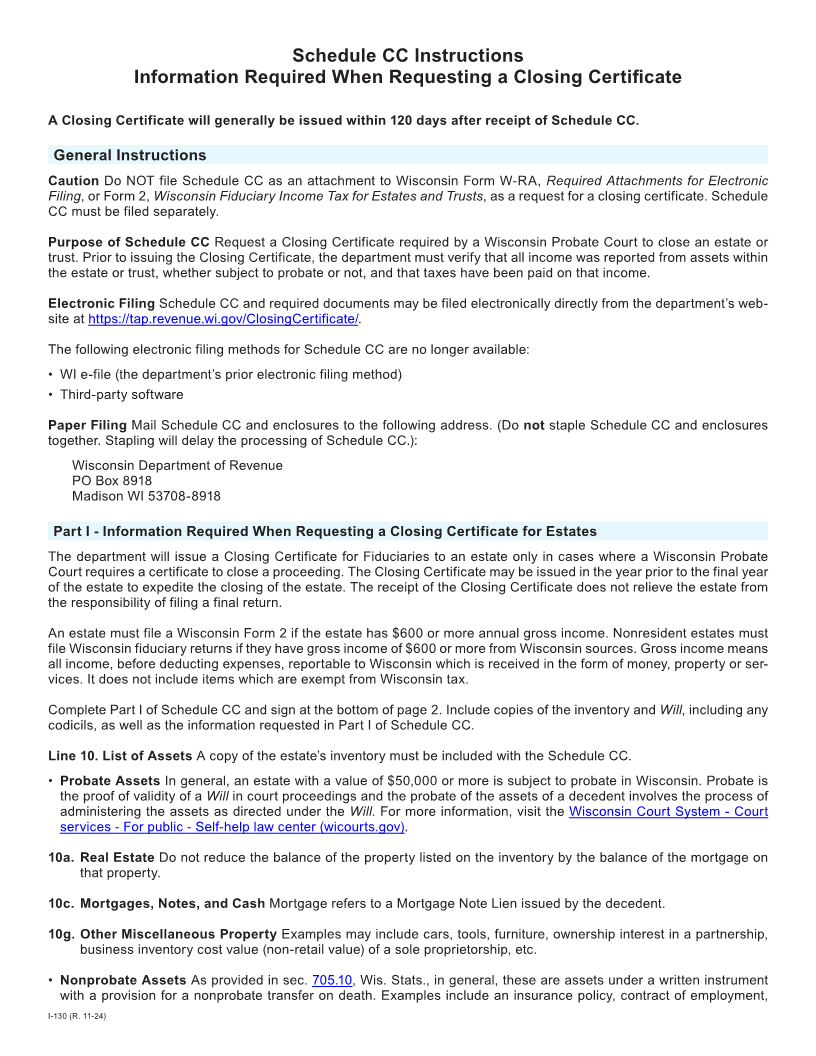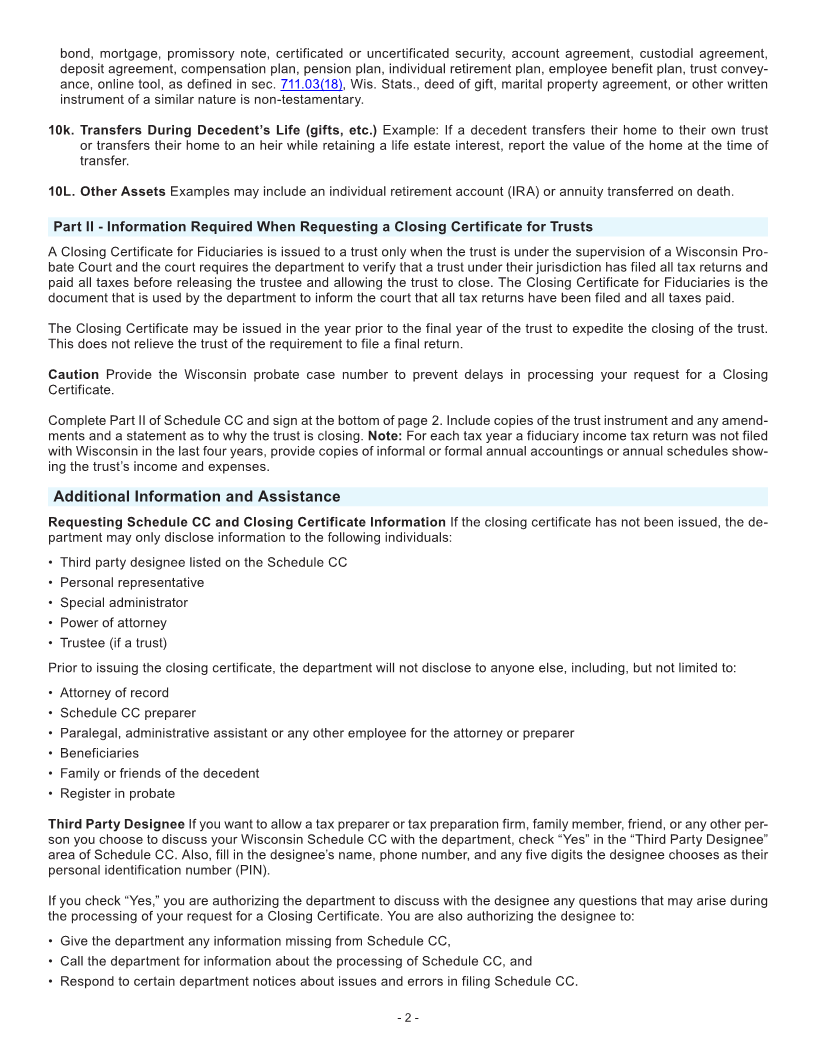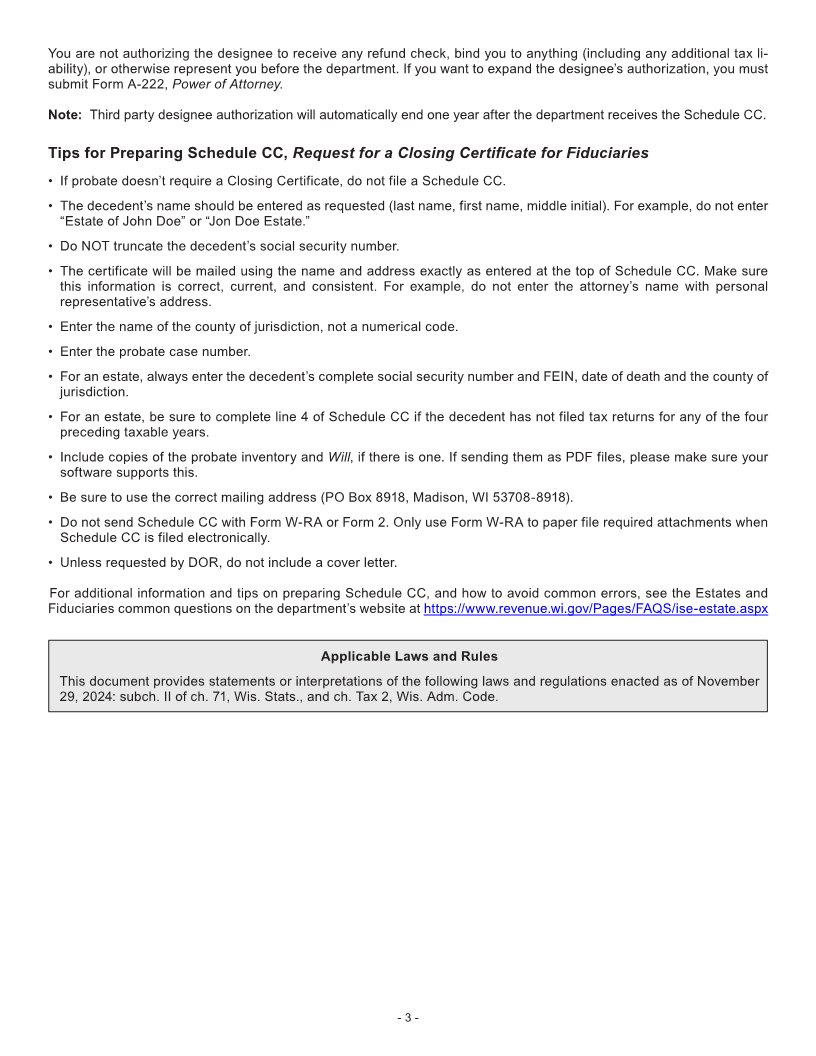
Enlarge image
Schedule CC Instructions
Information Required When Requesting a Closing Certificate
A Closing Certificate will generally be issued within 120 days after receipt of Schedule CC.
General Instructions
Caution Do NOT file Schedule CC as an attachment to Wisconsin Form W-RA, Required Attachments for Electronic
Filing, or Form 2, Wisconsin Fiduciary Income Tax for Estates and Trusts, as a request for a closing certificate. Schedule
CC must be filed separately.
Purpose of Schedule CC Request a Closing Certificate required by a Wisconsin Probate Court to close an estate or
trust. Prior to issuing the Closing Certificate, the department must verify that all income was reported from assets within
the estate or trust, whether subject to probate or not, and that taxes have been paid on that income.
Electronic Filing Schedule CC and required documents may be filed electronically directly from the department’s web-
site at https://tap.revenue.wi.gov/ClosingCertificate/.
The following electronic filing methods for Schedule CC are no longer available:
• WI e-file (the department’s prior electronic filing method)
• Third-party software
Paper Filing Mail Schedule CC and enclosures to the following address. (Do not staple Schedule CC and enclosures
together. Stapling will delay the processing of Schedule CC.):
Wisconsin Department of Revenue
PO Box 8918
Madison WI 53708-8918
Part I - Information Required When Requesting a Closing Certificate for Estates
The department will issue a Closing Certificate for Fiduciaries to an estate only in cases where a Wisconsin Probate
Court requires a certificate to close a proceeding. The Closing Certificate may be issued in the year prior to the final year
of the estate to expedite the closing of the estate. The receipt of the Closing Certificate does not relieve the estate from
the responsibility of filing a final return.
An estate must file a Wisconsin Form 2 if the estate has $600 or more annual gross income. Nonresident estates must
file Wisconsin fiduciary returns if they have gross income of $600 or more from Wisconsin sources. Gross income means
all income, before deducting expenses, reportable to Wisconsin which is received in the form of money, property or ser-
vices. It does not include items which are exempt from Wisconsin tax.
Complete Part I of Schedule CC and sign at the bottom of page 2. Include copies of the inventory and Will, including any
codicils, as well as the information requested in Part I of Schedule CC.
Line 10. List of Assets A copy of the estate’s inventory must be included with the Schedule CC.
• Probate Assets In general, an estate with a value of $50,000 or more is subject to probate in Wisconsin. Probate is
the proof of validity of a Will in court proceedings and the probate of the assets of a decedent involves the process of
administering the assets as directed under the Will. For more information, visit the Wisconsin Court System - Court
services - For public - Self-help law center (wicourts.gov).
10a. Real Estate Do not reduce the balance of the property listed on the inventory by the balance of the mortgage on
that property.
10c. Mortgages, Notes, and Cash Mortgage refers to a Mortgage Note Lien issued by the decedent.
10g. Other Miscellaneous Property Examples may include cars, tools, furniture, ownership interest in a partnership,
business inventory cost value (non-retail value) of a sole proprietorship, etc.
• Nonprobate Assets As provided in sec. 705.10, Wis. Stats., in general, these are assets under a written instrument
with a provision for a nonprobate transfer on death. Examples include an insurance policy, contract of employment,
I-130 (R. 11-24)

